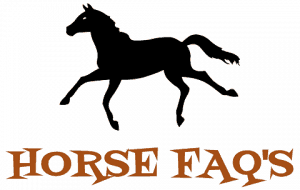As a horse owner, finding a suitable place to board your equine companion can be a daunting task. With various types of boarding options available and a wide range of associated costs, it’s essential to be well-informed before making a decision.
Horse boarding 101 provides a comprehensive guide to help you navigate the different types of horse boarding, associated costs, and tips for choosing the right boarding facility for your horse.
This article aims to provide an objective and professional insight into the world of horse boarding. We’ll start by discussing the various types of boarding options, including stall and paddock boarding, self-care, and retirement facilities.
Next, we’ll explore the factors that influence the cost of horse boarding, such as location, amenities, and services offered.
Finally, we’ll provide tips for choosing the right boarding facility for your horse, including conducting thorough research, visiting potential facilities, and asking relevant questions to ensure the safety and well-being of your horse.
Types of Boarding
Various types of horse boarding offer different forms of care and come at varying costs.
Pasture boarding, for instance, allows horses to roam freely in a large field with other horses, providing them with ample exercise and socialization. This type of boarding option has been found to have several benefits, such as reduced risk of respiratory problems, improved joint health, and increased happiness in horses. However, pasture boarding may not be suitable for horses with special dietary needs or those that require more individualized care.
On the other hand, self-care boarding, where the owner is responsible for providing feed, water, and daily care for their horse, can be a more affordable option. However, it requires a considerable amount of time, effort, and knowledge to properly care for a horse. The owner must also provide their own equipment and take full responsibility for their horse’s well-being. While self-care boarding may work for some horse owners, it may not be the best option for those who have busy schedules or lack experience in horse care.
Cost Factors
Location is a key factor that can significantly affect the cost of horse boarding, with facilities located in urban areas charging more than those in rural areas due to higher land and property values.
Other factors that can influence the cost include the level of care provided, amenities available, and the size and type of boarding facility.
For example, a self-care boarding facility located in downtown Los Angeles may charge $500 per month, while a similar facility located in rural Indiana may only charge $150 per month.
When considering the cost of horse boarding, it is important to note that higher fees do not always equate to better care.
Factors such as the quality and quantity of forage, the availability of clean water, and the overall safety of the facility should also be taken into account.
It is recommended to do thorough research and visit potential boarding facilities before making a final decision.
By considering all cost factors, including location, horse owners can find the right boarding option that suits their budget and the needs of their horse.
Choosing a Facility
When selecting a facility for equine care, it is important to consider several factors. First, location considerations should be taken into account. The facility should be located in an area that is easily accessible, especially in cases of emergency. The facility should also be situated in an area that offers a safe riding space and access to trails, if possible.
Second, facility amenities should also be considered. The facility should have adequate shelter and turnout space for the horses. Additionally, the facility should offer support for discipline, such as access to trainers and clinicians. Other amenities to consider include access to veterinary care, wash racks, and storage for equipment.
Finally, it is crucial to choose a facility with an experienced and knowledgeable manager who is committed to providing quality care for the horses.
Frequently Asked Questions
How often should a horse boarder visit their horse at the facility?
To maintain a strong bond with their horse and ensure its well-being, a horse boarder should visit their animal at least once a week. This visit frequency provides ample bonding time and allows for daily checks to detect injuries and other problems.
Can boarders bring their own feed and supplements for their horse?
Horse boarders typically have the option to bring their own feed and supplements for their horse, depending on the barn policies. However, it is the owner’s responsibility to ensure that the diets are customized and supplement options are appropriate for their horse.
What happens if a horse gets injured or sick while at the boarding facility?
In the event of a horse becoming injured or sick while at a boarding facility, insurance coverage and emergency protocols are typically in place to provide necessary medical care. Boarding facilities should have clear procedures and trained staff to handle such situations.
Are there any restrictions on riding times or areas at the facility?
Riding restrictions and facility access are common safety precautions implemented by horse boarding facilities to ensure horse health and well-being. These restrictions may include limited riding times or designated riding areas to prevent accidents and injuries.
Is there a minimum or maximum amount of time a horse can be boarded at the facility?
The facility offers both short and long term horse boarding options, with no minimum or maximum time requirements. Boarding contract requirements vary depending on the type of board selected by the owner.

